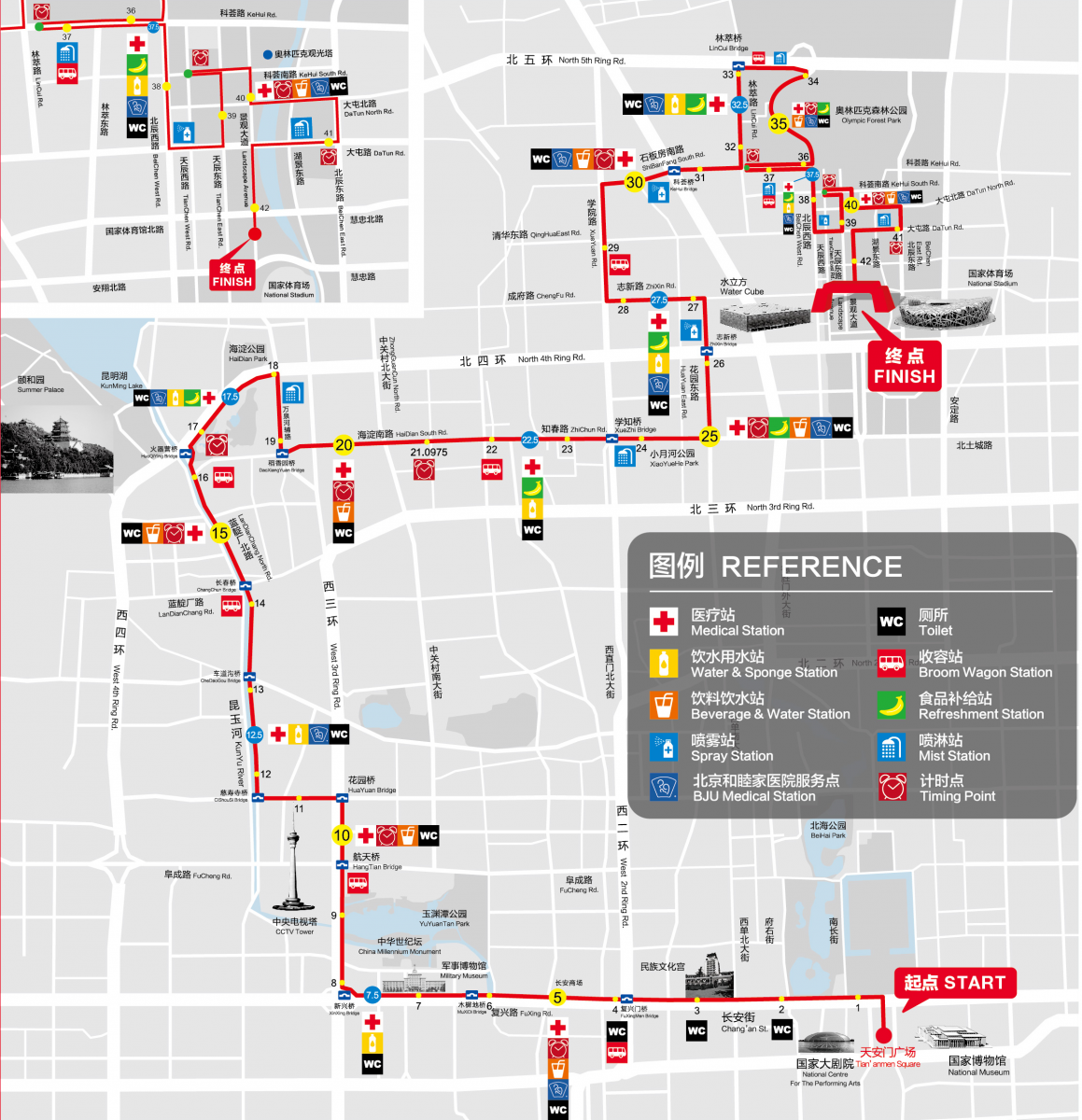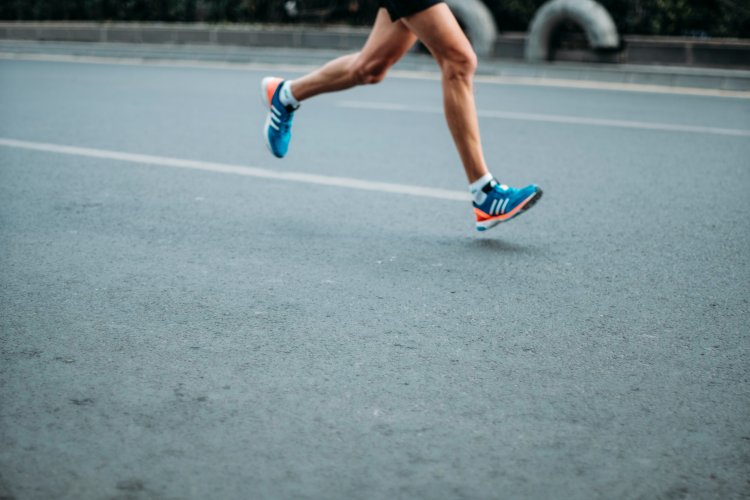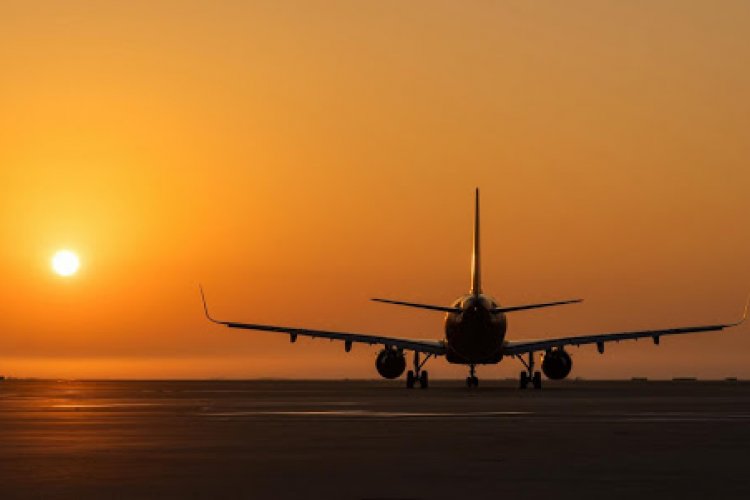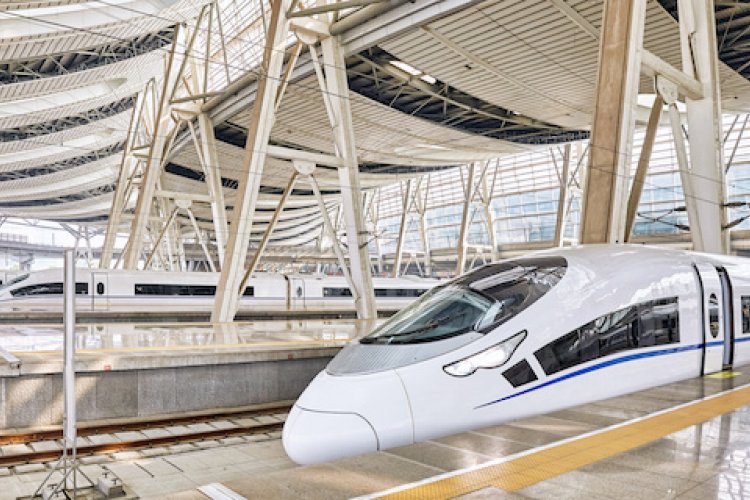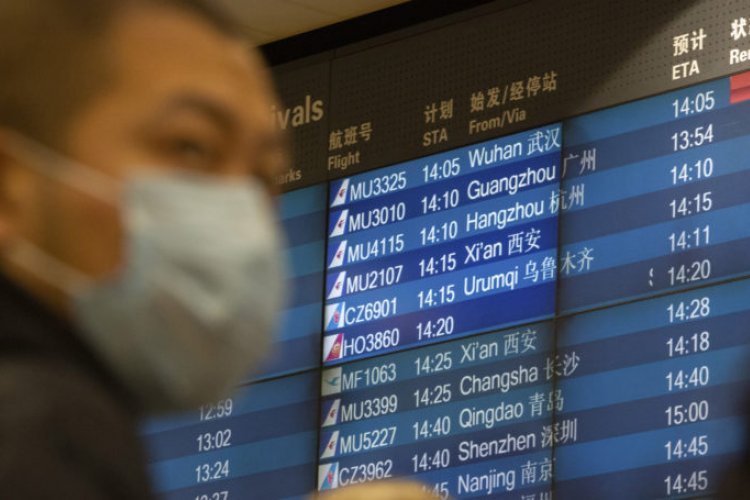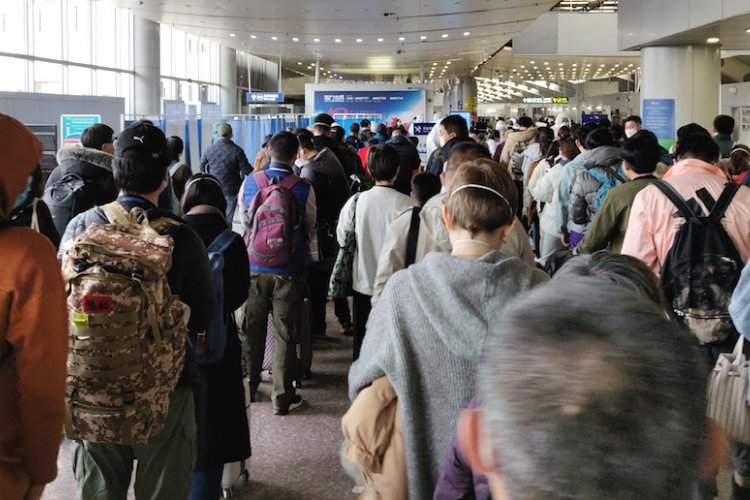Talking Travel: Marathon Road Closures, Beijing Limits Outside Commuters
Talking Travel: Your semi-regular roundup of Beijing's latest transportation-related news.
Roads to close Sunday morning for the Beijing Marathon
At last, the Beijing Marathon has arrived. This Sunday, over 30,000 are expected to hit the 42km road where Zuckerberg once tread. If you aren’t one of those lucky runners, however, take note that the race will result in a number of central and northern roads being, like Mr. Zuckerberg’s flagship website, blocked from use.
Starting at Tiananmen, runners will travel east until Xinxing Bridge, at which point the race heads north all the way up to Haidian Park. From there, it zags back to west before turning north again at Xiaoyuehe Park, ending with a weaving trip through Olympic Park.
The roads as marked on the map above will be closed to vehicles and non-competing pedestrians from 7.30am on Nov 3, and will not reopen until the event concludes at least 6 hours later, according to Beijing Daily.
Last year, the marathon was completed under blue skies, and a projected AQI of just 69 promises relatively clear lungs for the runners this year as well.
Beijing aims to reduce traffic from outside plates
With more than 5.6 million cars with registered Beijing license plates, the city has long been forced to take a strong stance to reduce the number of cars on the road. Those methods most famously include capping the number of vehicle owners and through road-space rationing, or alternating days that cars are allowed to drive on certain roads within the city limits.
But there are thousands of cars that regularly enter Beijing without local registration. Up to now, vehicles with non-Beijing plates needed only to apply for a daily or weekly permit to enter the city. That system ended up welcoming in an extra 700,000 regular commuters, which is an addition of about 12 percent on top of local cars.

That will be changing soon however, as a new policy will limit the amount of time that non-Beijing vehicles can enter the city to a total of 84 days. Those days can be either consecutive or split up, but any way you slice it, the rule effectively prevents outsiders from using a car to commute into the city on a regular basis.
The policy applies to the area within the Sixth Ring Road, but also includes Tongzhou. In an interview with local news media Bendibao, an official said that the inclusion of Tongzhou is part of a plan to connect the area to Beijing with, among other things, road construction that will further reduce traffic congestion.
Along with initiatives to transition to electric vehicles, including the conversion of more than 20,000 taxis over the next two years, reducing traffic in the city is key to cutting air pollution, 22 percent of which came from vehicle emissions in 2017.
READ: Just About Everything You Need to Know About High-Speed Train Travel in China
Images: Beijing Marathon, Take Foto


